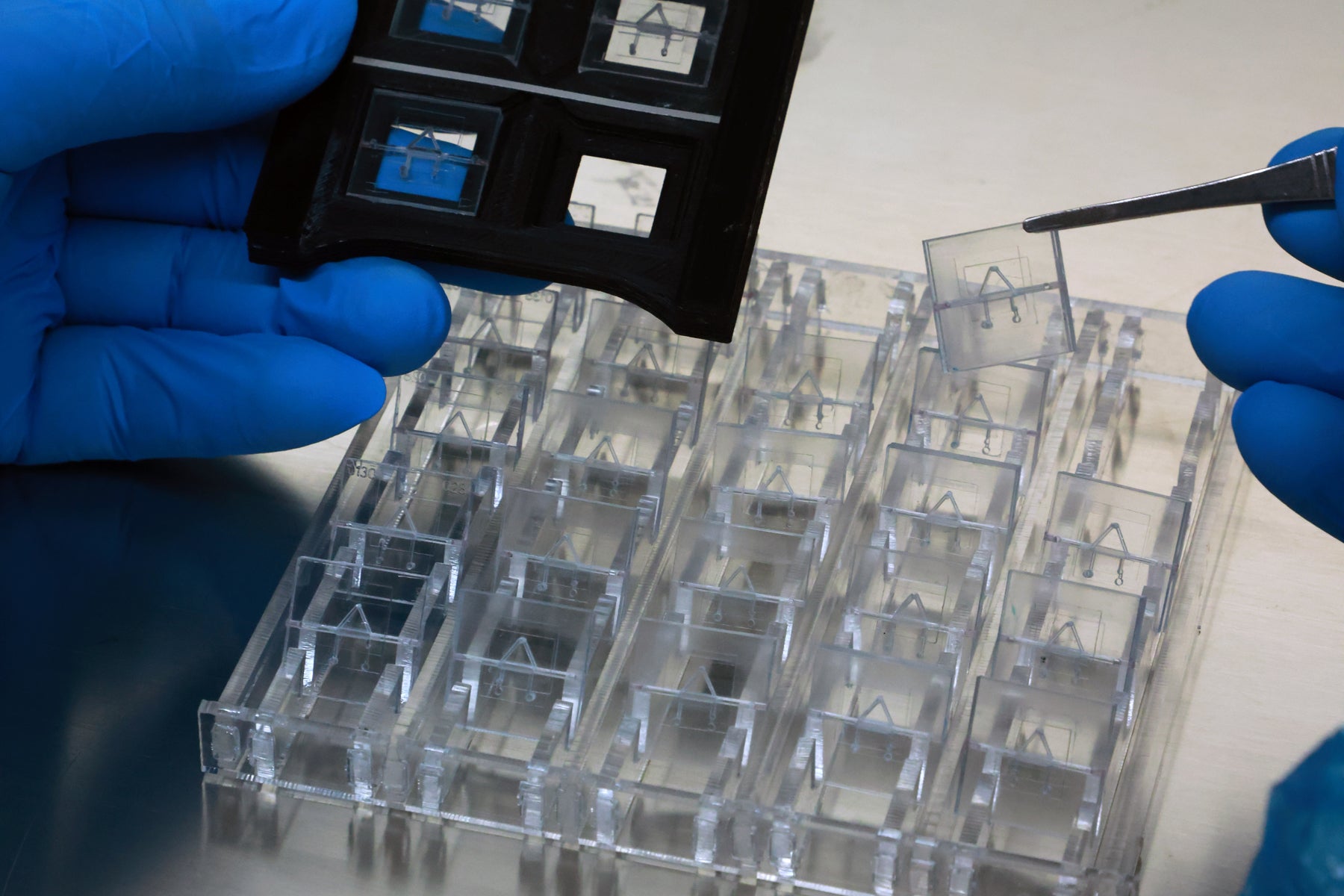
The advent of organ-on-chips transformed disease research, and now DLOC Biosystems is looking to go one step further. The American University of Beirut spin-out wants to connect multiple chips to form an automated human-on-chip system, and it has enlisted the help of 42 Technology to help develop the platform.
Organ-on-chips themselves aren’t that new – the first was successfully created in 2010 at Harvard University – but a lesser-known frontier is the combination of multiple organ models onto a single system.

Discover B2B Marketing That Performs
Combine business intelligence and editorial excellence to reach engaged professionals across 36 leading media platforms.
Over the past decade, organ-on-chips have been used to model a wide range of human diseases and disorders to facilitate research in drug development and explore potential therapies.
There has also been discussion around the technology’s potential to put an end to pre-clinical animal testing.
DLOC and 42 Technology – a Cambridge, UK-based design consultancy – have already been working together in a pre-planning phase over the past year and a half. 42 Technology said that now it has helped DLOC tie down patents protecting the technology, the project is moving into the next phase of development.
DLOC already has microfluidic biochips from existing projects and developed mammary, pancreatic, and renal biometric models. The partnership will aim to connect chips like these together to create an automated human-on-chip system. 42 Technology says research into tissues using this kind of amalgamated model is both more practical and versatile.

US Tariffs are shifting - will you react or anticipate?
Don’t let policy changes catch you off guard. Stay proactive with real-time data and expert analysis.
By GlobalDataDLOC plans to offer the tech via pre-clinical trials-on-chip testing service to pharma companies and contract research organisations (CROs), pointing to the tech’s ability to reduce drug development costs and improve safety in human trials.
It’s not just DLOC that is probing the human-on-chip space. CN Bio, a biotech company from Cambridge, UK, is also developing connected chip systems. DLOC claims its new system, if successfully developed, will be the world’s first human-on-chip to integrate multiple organ models with real-time measurement using in-built spectrophotometry and microscopy.
Waddah Malaeb, CEO and co-founder of DLOC said: “42 Technology is the ideal development partner to help boost the intensive system development programme that’s already ongoing within DLOC’s own laboratories and manufacturing facility, and with our university partners. The company’s engineering team is well known for its collaborative approach, as well as having significant expertise in areas such as microfluidics, high-precision mechanical engineering and system design.”




